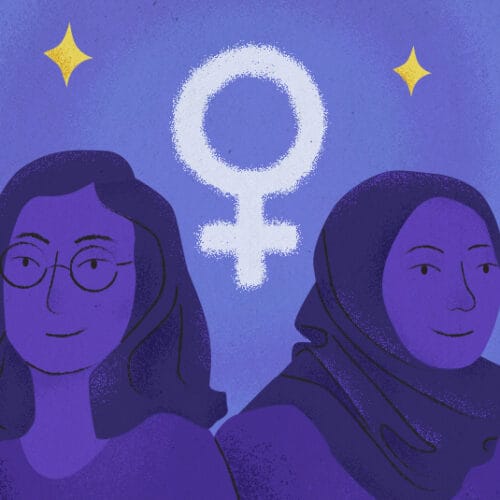Happy International Women’s Day to all the women who continue to stay strong and work hard to fight the injustice that clouds our reproductive rights. As a woman, mother of three, and student, I’d like to talk about the impact of recently proposed policies concerning reproductive freedom on student mental health and the importance of reproductive rights in protecting our well-being.
The current conversation about reproductive freedom can significantly impact the mental health of young adults. Discussions around access to contraception, abortion, and reproductive healthcare can be emotionally charged and polarizing. When young adults perceive that their reproductive rights are being threatened or that they may lose access to essential healthcare services, they may experience feelings of anxiety, fear, frustration, and anger. These emotions can be incredibly intense for those who have experienced trauma or discrimination related to reproductive health, such as being denied access to abortion or contraception or facing stigma for their sexual orientation or gender identity. As an undocumented immigrant, I experienced feeling discriminated against while seeking women-related medical services at my local clinic. My parents couldn’t afford medical care, and I had no clue how to navigate my options as a young adult. I was talked down to or treated like an ignorant person; I was not offered options. I remember walking out of the clinic crying and feeling alone and helpless. I felt as if I had no rights.
Barriers to abortion care are intertwined with economic justice and racial justice issues such as economic inequality, racial discrimination, and gender-based violence, which can significantly impact our mental health. These factors can contribute to stress, anxiety, depression, trauma, and even physical health problems like heart disease and diabetes. Our physical health can’t be separated from our mental health, and ensuring that everyone, regardless of class, race, gender identity, or background, has access to the healthcare they need is crucial.
While the future of reproductive rights is still unclear, there are several steps we can take to support the mental health of those struggling around us with the state of reproductive freedom in the United States today.
- Create safe spaces for people to discuss their feelings and experiences regarding reproductive health without judgment or stigma. This can include providing access to counseling services, support groups, and other mental health resources.
- Work to increase awareness and education about reproductive rights, including providing accurate information about contraception, abortion, and other reproductive healthcare services.
- Champion the protection and expansion of access to reproductive healthcare services, including contraception, abortion, and maternal healthcare.
I was diagnosed with symptoms of PCOS at 16 at my local Planned Parenthood. I was offered birth control, and basic education on what PCOS was and what birth control was. I was able to talk to a counselor and discuss how I felt, and everything that was stressing me out. It felt nice, I felt heard and supported. When young adults are offered options such as this it can provide feelings of safety, and that can play a significant role in our mental health. When we feel safe and secure in our environment, we are more likely to experience positive emotions, feel more connected to others, and have a greater sense of well-being. Conversely, our mental health can be negatively impacted when we feel unsafe or threatened. We may experience symptoms of anxiety, depression, or trauma and have difficulty functioning in our daily lives. Creating safe and supportive environments for individuals to access reproductive healthcare services and address any safety and access barriers is essential as we continue to strive towards a world where our mental and physical health is prioritized and safeguarded.
Keeping in mind the individuals who identify as trans men, nonbinary, or gender non-conforming and require reproductive rights, as a woman, I write this from my point of view. Still, I completely understand and respect everyone’s needs, and perspectives on this topic might differ.








